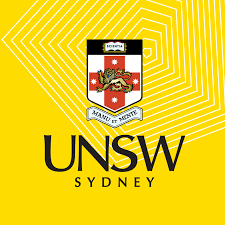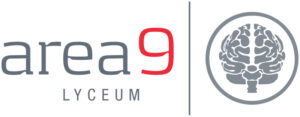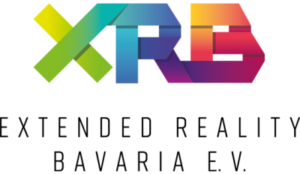Thank you for participating
in our first eduFutureDay.
We hope you enjoyed the event as much as we did. More than 250 participants took part in the 1st eduFutureDay on October 28, 2021 organized by Simovative GmbH. We had great speakers who shared valuable knowledge, we exchanged ideas with partners from all over the world and we discussed the future of education.
Adaptive Learning, Artificial Intelligence, Learning Analytics, Mobile Learning and Virtual Reality were the main topics of the first eduFutureDay. Thank you to all participants and speakers for being a part of this journey with us and making this event so amazing! We will see you again next year!
Organized by
Simovative GmbH – The experts in the digitalisation of processes in higher education institutions and front-runner in the field of campus management solutions with the software academyFIVE.
Powered by
Amazon Web Services / AWS – The world’s most comprehensive and broadly adopted cloud platform, offering over 200 fully featured services from data centers globally.
#eduFutureDays | October 28, 2021
Program Review
Opening
Torsten Fürbringer, Host and Managing Director at Simovative GmbH
Claudia Kana, Moderation and Project Manager at Simovative GmbH
Daniel Bacelic, Education Partner Lead for EMEA at AWS
Artificial Intelligence
Reinventing the Digital Classroom with Artificial Intelligence
David Kellermann
Senior Lecturer in Engineering at the University of South Wales, Sydney/Australia
Adaptive Learning
„One size fits all“ is outdated – why the future of learning is adaptive
Daniel Hong
Learning Solutions Architect, Area9 Lyceum GmbH, Leipzig/Germany
Virtual Reality
Learn and work with VR/AR today and in the future
Clarence Dadson
Chairman of Extended Reality Bavaria and CEO of Design4real, Munich/Germany
Mobile Learning
Insights in Future Learning Scenarios with AR and AI in Physics Education
Stefan Küchemann
Senior Scientist in Physics Education Research, TU Kaiserslautern
Learning Analytics
Storytelling with Data: Use Your Evidence; Use it Effectively
Tonya Riney, Chief Operating Officer, IntelliBoard Inc., Connecticut/USA
Becky Keith, VP-Platforms, IntelliBoard Inc., Connecticut/USA
#eduFutureDays | October 28, 2021
Topics
No. 1
Artificial Intelligence
Artificial Intelligence (AI) means a certain “intelligence” of computer systems which is similar to the natural intelligence of the human being. Principally, we can describe a behaviour of a machine as “intelligent” when the system makes the best decision on his own without the influence of a human being. Well, probably this is not very exact – because the human being “feeds” the machine with a lot of data, before various algorithms combine this data to find the best alternative. AI really plays a big role in new methods of education, because almost each digital education program uses data to analyse the student success. If we talk for example about Adaptive Learning, Learning Analytics or Mobile Learning, each strategy pursues the objective of optimizing the individual learner journey. With the aid of Artificial Intelligence, the machine can analyse millions of data to find in the end the individual perfect way of each learner!
No. 2
Adaptive Learning
The focus of Adaptive Learning is on the adaption of the learner journey to have the perfect individual learner result in the end. How should this work? Well, in fact, there is a collection of various data which the machine uses to compare different learner cercles. The evaluation of this data can be based on different factors like for example the time somebody needs to solve a problem, self-assessment questions about the own know-how or the presentation of different content formats. With the combination of all these factors, the program can build an individual way of learning, which guarantees that the learner has understood everything at the end. What a fantastic innovation!
No. 3
Mobile Learning
Mobile Learning relates to mobile devices which permits the access to a learning program. It is not really the opposite of the classical schoolbook like learning media, it could be also a supplement feature which combines the classical presentation of the learning material with modern techniques. The smart book for example is not only a digital book with content on the screen. It goes even deeper, for example with an integrated button in the text allows the learner to retrieve more information about the topic or a camera, which is integrated in the terminal and which tracks the movement of the eyes while reading to find out the comprehension level of the learner. What a great feature!
No. 4
Learning Analytics
Learning Analytics describes all methods to collect, analyse and report data of the learner and the learning environment. Independent of the tool which is used like social media channels, learning management systems or a specific learning software, learning analytic programs are able to track the frequency of the clicks, the time somebody uses to make a choice or also the navigation pattern of how the student worked with the content. Critics would argue that the monitoring of every data is not necessary but learning analytic tools could have a good impact of the learner journey, whether as feedback for the teacher about their material or as feedback for the student about their difficulties regarding a specific topic!
No. 5
Virtual Reality
Virtual Reality (VR), Augmented Reality (AR), Mixed Reality (MR) or Experience Reality (XR) means a simulated experience which can be different or similar to our real world. The special thing about this technique is our immersion in a digital world where the perception of our senses is blending with the perception of our senses in the real word – most of the time we feel like we are moving in a “real world” although we are in a complete fictive environment. Especially in the field of education, we see virtual reality as a big chance for students to visit places, where they never could be in reality. Another example is the performing of exercises which is perfectly possible in a virtual environment without causing damage. If we talk about flying an airplane or operating a patient – everything is possible in a virtual world!
#eduFutureDays | October 28, 2021
Meet our speakers

Founder of Kovexa, Andrew Ko enjoys developing the EdTech market, shaping initiatives and high profiled partnerships. With several years of management experience in well-known companies like Amazon, Samsung and Microsoft, he works together with companies all over the world to accelerate the output of their businesses for the transformation of learning. He takes us with him on his journey to a new learning environment based on technology. Instead of the conventional methods, he shows us an innovative way of learning!

Working as a Senior Lecturer in the School of Mechanical and Manufacturing Engineering at the University of South Wales in Sydney, Dr David Kellerman had a normal life – until his instinct drove him one day to the simple question, how to react to hundreds of students’ questions at the same time while they are preparing for their exams? He got an idea which will change the whole way students’ work at the university: He created an algorithm based on artificial intelligence that is able to collect all the students’ questions and answer them simultaneously. In his presentation he gives us an insight how teachers can improve the comprehension of their students with the help of technology!

Daniel Hong has more than five years of experience in B2B sales. His previous work experience includes sales for a well-known Korean car manufacturer while he was part of a team at a renowned airbag and seatbelt manufacturing company. More recently, he was a sales manager at an Adtech company, in the Google My Business industry, where he was able to further sharpen his skill set. Daniel is now part of the solution architecture team at Area9 Lyceum based in Leipzig.

Clarence Dadson is owner and creative director of the agency Design4real in Munich devoted to creating XR Content and chairman of the XR Bavaria association. He helps brands take the step in to XR Media, like Virtual and Augmented Reality and 360° Video. Furthermore, he creates virtual spaces in XR where people can learn work, and play.

Senior Scientist at TU Kaiserslautern, Department of Physics/Physics Education Research Group, Stefan Küchemann focuses on the research of teaching and learning and the digitization of the education of teachers. Together with his colleague, Andreas Dengel, he developed in the project “Hypermind” a smart intelligent schoolbook for physics, using the eye-tracking technology to measure how well the students are understanding the material. In the meantime, this project is promoted by the German Ministry of Education and is at the imminent state of release in several pilot schools. We are excited to know more about this project and his thinking about the implementation of this technology!

Started as lecturer for communications and learning techniques, Tonya Riney leads today as Chief Operation Officer at IntelliBoard, Inc. the business development of an intelligent software which analyses the data of thousands of learners based on different Learning Management Softwares. The objective of such a software is the evaluation of the learners’ behavior, so that teachers can adapt the learning program and contribute positively to the students’ success. We are curious about how this system works and the feedback Tonya gets from the universities!

Becky Keith is an educational technology leader with experience as an educator, product officer, and executive at multiple EdTech startups. She is currently the VP of Platforms at IntelliBoard, where she leads a team responsible for collaborating across the organization and communicating with clients to deliver value in the IntelliBoard platform. Becky’s love for online learning and connecting with educators led her to her current position!

With more than 20 years of experience in the field of EdTech, Torsten Fürbringer, Founder and Managing Director of the Simovative GmbH, is an expert regarding the administrative digitization of educational institutions. He also has an incredible expertise in new technologies used in the higher education. With Simovative’s Campus Management System, academyFIVE, he is in a constant communication with European universities and is expanding his partner network worldwide to create a better learning environment for students. Join the network and get in contact!

Claudia Kana is a Project Manager at Simovative GmbH with over four years of experience in Project and Operations Management and a passion for the digital and tech industries. Currently managing several national and international projects, implementing the Campus Management System academyFIVE and hosting workshops for clients all over Europe, Claudia loves getting in contact with other people to exchange ideas on new educational technologies!

As Education Partner Lead for EMEA at Amazon Web Services, Daniel Bacelic redefines the IT infrastructure of educational, governmental and healthcare companies in Europe, Middle East and Africa to let them operate in a better and efficient way. His focus is on Educational Empowerment using his strength making smart and fast decisions which result in long-lasting and sustainable processes. We are excited of his perspective of learning and his input from many different projects in this area!














